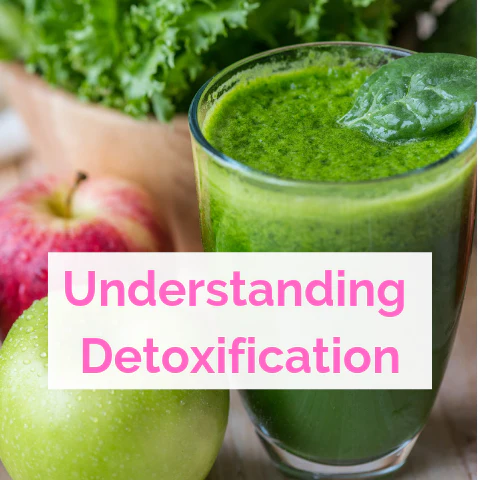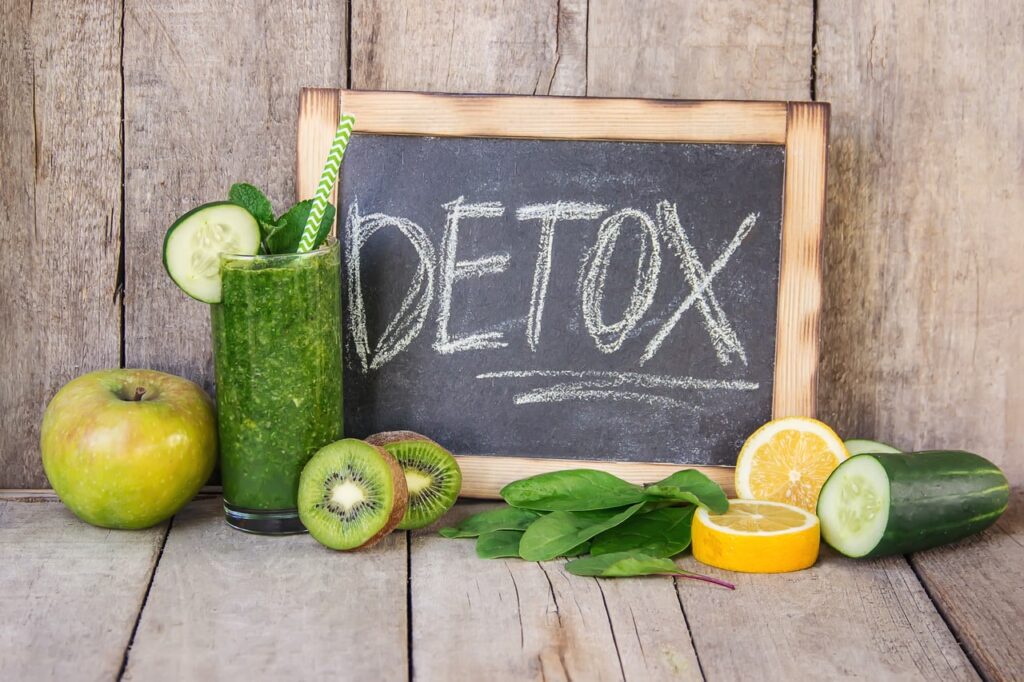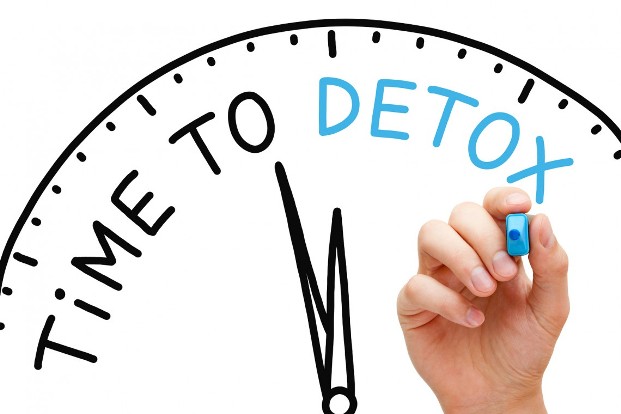Unlock the secrets to revitalizing your health with our comprehensive guide on Body Reset: Advanced Detoxification Strategies. Dive into the world of detoxification with expert tips on dietary adjustments, hydration, exercise, and more for a complete body cleanse.
Table of Contents
Introduction
In our fast-paced world, filled with processed foods, environmental pollutants, and high-stress lifestyles, the importance of detoxification has never been more apparent. A body reset through advanced detoxification strategies can offer a pathway back to optimal health, vitality, and well-being. But what exactly is a body reset, and why is it necessary?
Understanding Detoxification
The Body’s Natural Detox Systems
The human body is equipped with an intricate system specifically designed for detoxification, primarily involving the liver, kidneys, digestive system, skin, and lungs. Each of these organs plays a critical role in filtering and eliminating toxins from the body.
- Liver: Often considered the body’s main detox organ, the liver filters and converts toxins into harmless substances that can be easily excreted.
- Kidneys: Through the production of urine, the kidneys remove waste products and excess substances from the blood.
- Digestive System: The gastrointestinal tract, along with the help of beneficial bacteria, ensures that toxins in food are not absorbed and are excreted.
- Skin: Sweating is another way the body eliminates toxins, using the skin as a large excretory organ.
- Lungs: The lungs help remove carbon dioxide, a byproduct of metabolism, from the bloodstream.
Common Myths About Detox
Detoxification is often surrounded by myths and misconceptions, primarily due to commercial detox products and diets. Here are a few common myths debunked:
- Myth 1: Detox diets and products are necessary for detoxification. The truth is, while certain dietary changes can support the body’s natural detox processes, healthy individuals’ organs and systems are entirely capable of handling detoxification without special diets or products.
- Myth 2: Detoxification is a quick fix for weight loss and health. Effective detoxification and achieving health benefits is a gradual process that involves long-term lifestyle changes rather than a quick-fix solution.
- Myth 3: More sweating means more detox. While sweating does help eliminate some toxins, it’s not an indicator of how effectively the body is detoxifying. The liver and kidneys play a much more significant role in detoxification.
Supporting Your Body’s Detoxification System
While the body is well-equipped for detoxification, certain lifestyle choices can support and enhance these natural processes:
- Hydration: Drinking enough water is crucial for facilitating the elimination of water-soluble toxins and supporting kidney function.
- Nutrition: A diet rich in fruits, vegetables, whole grains, and lean proteins can provide essential nutrients and antioxidants that support detoxification.
- Exercise: Regular physical activity can enhance circulation and help sweat out toxins.
- Limiting Exposure: Reducing exposure to pollutants and chemicals, such as pesticides and household cleaners, can lessen the detoxification burden on your body.
- Stress Management: Chronic stress can negatively impact the body’s ability to detoxify. Practicing stress-reduction techniques can be beneficial.

The Need for Advanced Detox
Signs Your Body Needs a Reset
The body often signals when it’s struggling to manage the toxin load. Recognizing these signs is crucial in determining the need for an advanced detox. Common indicators include:
- Persistent fatigue: Feeling constantly tired, despite adequate sleep, can indicate the body’s inefficiency in eliminating toxins.
- Digestive issues: Bloating, constipation, and other gastrointestinal problems may suggest a buildup of toxins affecting digestive health.
- Skin problems: Acne, rashes, and other skin issues can arise from the body attempting to expel toxins through the skin.
- Mental fog: Difficulty concentrating, memory problems, and a general sense of cloudiness can be attributed to toxin exposure affecting brain health.
- Unexplained weight gain: Difficulty losing weight, despite healthy eating and exercise, may signal a sluggish detox system.
Benefits of a Thorough Detoxification
Adopting advanced detox strategies can significantly enhance the body’s detoxification capabilities, offering numerous health benefits:
- Improved energy levels: Eliminating toxins can lead to a noticeable increase in vitality and energy.
- Enhanced digestive health: A detox can help reset the digestive system, improving nutrient absorption and alleviating gastrointestinal issues.
- Clearer skin: As the body more effectively eliminates toxins, skin health can improve, resulting in clearer, more radiant skin.
- Cognitive clarity: Reducing toxin exposure can help lift mental fog, enhancing focus and cognitive function.
- Weight management: A properly functioning detox system can aid in achieving and maintaining a healthy weight.
Why Advanced Detox Strategies Are Necessary
Given the complexity and volume of toxins encountered daily, basic dietary changes and periodic detoxes may not suffice. Advanced detox strategies incorporate a holistic approach, addressing various aspects of health to optimize the body’s detoxification processes. These strategies may include targeted nutritional support, specific detoxification protocols, and lifestyle modifications tailored to reduce toxin exposure and enhance the body’s natural cleansing mechanisms.

Preparing for Detox
Mental Preparation
- Set Clear Goals: Understand why you are detoxing. Is it to improve digestion, boost energy levels, or perhaps to kick-start a weight loss journey? Setting clear, achievable goals can help motivate you throughout the process.
- Commitment: Prepare yourself for the commitment required. A detox might mean making significant changes to your diet, lifestyle, and daily routines. Being mentally prepared for these changes can help you stick with them.
- Seek Support: Inform friends and family of your plans to detox. Support from your social circle can provide motivation and accountability. Additionally, consider joining a community or group undergoing a similar detox journey for communal support and tips.
- Manage Expectations: Understand that detoxing is not a magic bullet for health issues but a step towards a healthier lifestyle. Be realistic about what a detox can and cannot do for you.
Physical Preparation
- Evaluate Your Diet: Gradually start removing foods and substances that are commonly eliminated during a detox, such as processed foods, sugar, caffeine, and alcohol. This can help lessen withdrawal symptoms and make the transition smoother.
- Stock Up on Essentials: Before starting your detox, ensure your kitchen is stocked with the foods and ingredients you’ll need. Having healthy options readily available can help prevent slip-ups.
- Plan Your Meals: Plan your meals in advance to avoid the temptation of reaching for convenience foods. Preparing meals that align with your detox plan can also help you stay on track and reduce stress.
- Hydration: Increase your water intake before beginning the detox to start the hydration process early. Adequate hydration is crucial for helping the body flush out toxins.
- Rest and Sleep: Ensure you’re well-rested before starting your detox. The process can be taxing on the body, and being in a rested state can help your body manage the detoxification process more effectively.
- Exercise: Incorporate light to moderate exercise into your routine before starting the detox. Physical activity can boost circulation and help kickstart the detoxification process.

Advanced Detox Strategies
Dietary Adjustments
- Whole Foods Focus: Center your diet around whole, unprocessed foods. Fruits, vegetables, lean proteins, and whole grains contain essential nutrients that support detoxification pathways, particularly in the liver.
- Fiber-Rich Foods: Increase your intake of fiber-rich foods such as legumes, berries, seeds, and leafy greens. Fiber helps regulate the digestive system, facilitating the elimination of toxins through the bowel.
- Detoxifying Foods: Incorporate foods known for their detoxifying properties, like garlic, beets, green tea, and leafy greens. These foods enhance liver function, the body’s main detox organ.
- Limit Sugar and Processed Foods: Reducing sugar and processed foods decreases the intake of toxins and inflammatory substances, lightening the load on your detoxification systems.
Hydration Techniques
- Water Intake: Drinking sufficient water is crucial for detoxification, as it aids in flushing toxins through the kidneys. Aim for at least 8-10 glasses a day, or more if you’re active.
- Lemon Water: Starting your day with warm lemon water can stimulate the digestive system and support liver function.
- Herbal Teas: Certain herbal teas, such as dandelion or milk thistle, can support detoxification, particularly of the liver.
Exercise and Physical Activity
- Regular Exercise: Physical activity boosts circulation and sweat, both of which help remove toxins from the body. Aim for a mix of cardiovascular exercise, strength training, and flexibility exercises.
- Yoga: Yoga can be particularly beneficial during a detox, as certain poses are thought to stimulate digestion and liver function, aiding in the detoxification process.
Sleep and Rest
- Adequate Sleep: Quality sleep is crucial for detoxification, especially for the brain. During sleep, the brain’s waste-removal system (the glymphatic system) becomes more active, clearing out toxins that have accumulated during the day.
- Relaxation Practices: Incorporating relaxation practices, such as meditation or deep-breathing exercises, can reduce stress and support detoxification processes.
Supplement Support
- Liver Support: Supplements like milk thistle, turmeric, and dandelion root support liver health and its detoxifying capabilities.
- Fiber Supplements: If dietary fiber intake is low, fiber supplements can help in facilitating toxin removal through the digestive tract.
- Antioxidants: Supplements rich in antioxidants, such as vitamins C and E, selenium, and green tea extract, can protect cells from oxidative stress during the detox process.
Stress Management Techniques
- Mindfulness and Meditation: Stress can negatively impact the body’s ability to detoxify. Practices like meditation and mindfulness can lower stress levels, thereby supporting the detoxification process.
- Digital Detox: Reducing screen time, especially before bed, can decrease stress and improve sleep quality, aiding in detoxification.

Post-Detox Maintenance
Sustain a Nutrient-Rich Diet
- Gradual Transition: Slowly reintroduce foods that were eliminated during the detox, paying attention to how your body reacts to each. This can help identify potential food sensitivities or items that may best be minimized moving forward.
- Maintain Whole Foods: Continue focusing on whole, unprocessed foods as the foundation of your diet. Fruits, vegetables, whole grains, lean proteins, and healthy fats provide the nutrients your body needs to support ongoing detoxification and overall health.
- Mindful Eating: Adopt a mindful approach to eating. Pay attention to hunger and fullness cues, and eat in a calm, undistracted environment to support digestive health.
Hydration is Key
- Water Intake: Continue drinking plenty of water post-detox to support kidney function and overall hydration. Herbal teas and water-rich foods can also contribute to your daily fluid intake.
Regular Physical Activity
- Incorporate Exercise: Regular exercise should remain a staple in your routine. Find activities you enjoy, whether it’s yoga, walking, cycling, or strength training, to keep your body moving and assist in ongoing detoxification.
- Consistency Over Intensity: Focus on consistency rather than intensity. Engaging in moderate activity most days of the week can be more beneficial than occasional high-intensity workouts.
Quality Sleep
- Prioritize Sleep: Ensure you get enough restful sleep each night. Good sleep hygiene practices, such as maintaining a regular sleep schedule and creating a relaxing bedtime routine, can aid in better sleep quality.
Stress Management
- Regular Practice: Continue with stress management practices such as meditation, deep breathing exercises, or whatever techniques work best for you. Managing stress is crucial in maintaining the balance of the body’s natural detox systems.
- Digital Breaks: Regularly schedule times when you disconnect from digital devices. This can help reduce stress and improve mental clarity and focus.
Environmental Detox
- Minimize Toxin Exposure: Be mindful of your environment and try to minimize exposure to toxins. This can include using natural cleaning products, opting for organic foods when possible, and avoiding unnecessary chemical exposure.
Mindful Consumption
- Listen to Your Body: Pay attention to how different foods, activities, and stress levels affect your body. Being in tune with your body’s signals can guide you in making healthful choices that support detoxification and well-being.

Conclusion
Embarking on a body reset through advanced detoxification strategies can be a life-altering decision. This journey towards a cleaner, healthier self is not just about removing toxins but also about embracing a lifestyle that supports your body’s natural healing abilities.
FAQs
- What are the first steps to starting an advanced detox program?
- Can detoxification help with weight loss?
- How often should I undertake a detoxification process?
- Are there any risks associated with detoxification?
- How can I ensure the effects of a detox last?


MOST COMMENTED
Animal-Based Proteins / Casein Protein / Dietary Protein / High-Protein Diets / Pea Protein / Plant-Based Proteins / Protein / Protein Deficiency / Protein Supplements / Proteins / Whey Protein / Whey Proteins
Is Protein Powder Safe for Teenagers and Children?
Animal-Based Proteins / Casein Protein / Dietary Protein / High-Protein Diets / Pea Protein / Plant-Based Proteins / Protein / Protein Deficiency / Protein Supplements / Proteins / Whey Protein / Whey Proteins
Unlock the Power of Proteins for Optimal Gut Health
Multivitamin
Total Health: Multivitamin for Active Lifestyles
Multivitamin
WellnessFusion: Complete Multivitamin Support
Dietary Supplement
Revitalize Your Health: The Magic of Red Yeast Rice Capsules
Foot care / Foot Health
Revitalize Your Foot Care Routine: Essential Tips for Optimal Foot Health
Foot Problem / Diabetics / Foot Health
Diabetics: Mastering Footwear Selection for Enhanced Foot Health and Ultimate Comfort
Exercises and Footwear Tips for Hammertoe Relief / Foot care / Foot Health / Foot Pain / Foot Problem / Hammertoes
Unlock Effective Exercises and Footwear Tips for Hammertoe Relief
Hammertoes / Foot Health / Foot Pain / Foot Problem
Unlock Relief: Essential Guide to Hammertoes Causes, Symptoms, and Treatments
Foot Problem / Foot Health
Revolutionize Your Recovery: Natural Remedies for Plantar Fasciitis – Fresh Home Keepers